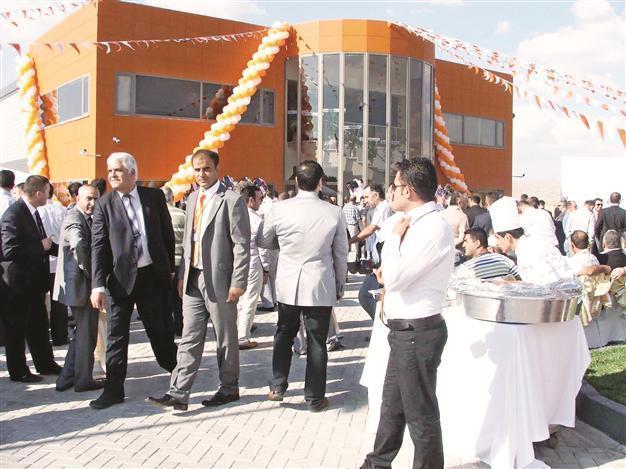Inter-family squabbles shut down Turkish firms
ISTANBUL - Hürriyet Daily News

Over the past 12 months, 109,000 new firms have been established, like the one seen in this photo, while 40,000 have closed their doors, says TOBB President Hisarcıklıoğlu. AA photo
A tendency toward inter-family disputes is one of the main reasons Turkish close down, according to Union of Chambers and Commodity Exchanges of Turkey (TOBB) President Rifat Hisarcıklıoğlu.
Speaking on his return from a trip to Greece, where he met Greek Tourism Minister Olga Kefalogianni, Hisarcıklıoğlu shared the preliminary results of TOBB’s September 2011-August 2012 analysis into the 40,000 local firms that have recently closed down.
Failure in expanding“Over the past year, 109,000 new companies have been set up, and 40,000 have shut down. The companies that have closed down over the past two years account for 20 percent of the total of all firms that have gone out of business,” he said.
Hısarcıklıoğlu said that despite being an entrepreneurial people, Turks were not successful in keeping their companies alive and expanding them. Having traveled all over Anatolia and having met with many firms, he listed several factors for their shutting down including the global economic crisis. However, he said he wanted to draw particular attention to inter-family disputes.
“The majority of our companies are family enterprises. Since they are not corporate, one can see inter-family disputes between brothers or partners in a short space of time. The company then suffers,” he said.
‘Partnership key to success’ According to Hisarcıklıoğlu, the key to success and growth is through partnerships.
Some 65 percent of the firms that have closed down over the past year were established within the past five years, said Hisarcıklıoğlu. Some 24 percent of firms closing down were established five to 10 years ago and 11 percent had been operating for over 10 years.
Meanwhile, touching on the fact that in the March-August period the percentage of bad checks increased from 2.5 percent to 4.4 percent, Hisarcıklıoğlu said that they thinking of implementing a system whereby the check receiver could ascertain the check writer’s credit and check history.
